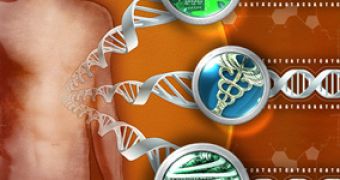The increasing number of researches in the human genetic field has found genes for alcoholism, drug addiction, obesity and each human fault.
Even for hair pulling or nose fishing...
Some fiction movies have already depicted futuristic situations in which people are employed based strictly on the genetic pattern; well-qualified persons are refused jobs just on the basis of the genetic background. Automated DNA typing is presented as a biometric identification way to restrict entry to office buildings. But these worries about the possibility of using genetic information (about genetic diseases) against people looking for jobs or insurance will remain in the movies.
The Genetic Information Nondiscrimination Act was voted with a score of 420-3 in the House of Representatives on Wednesday: none can legally use DNA information when offering insurance or a job. The act comes as a response to repeated situations in which family histories of sickle cell anemia, Huntington's disease, or various types of cancers were used against those seeking a job by the employers.
Genetic discrimination is treated as another form of discrimination and the confidentiality of the genetics of an individual is seen in the same way as for other medical records; of course, this does not mean that individuals will not be recorded in a database; only that the database could not be used for employment or insurance. A survey made by the Genetics and Public Policy Center at Johns Hopkins revealed a high public concern about the issue.
"... individual patients who could benefit from genetic testing are in some cases foregoing it out of concern over possible repercussions. A 2004 study of 470 people with a family history of colorectal cancer showed that nearly half rated their level of concern about genetic discrimination as high. Those individuals with high levels of concern indicated that they would be significantly less likely to consider even meeting with a health care professional to discuss genetic testing, or to undergo testing."
The White House supports these principles.
"Concern about unwarranted use of genetic information threatens the utilization of existing genetic tests as well as the ability to conduct further research." is a statement made on behalf of the President.

 14 DAY TRIAL //
14 DAY TRIAL //